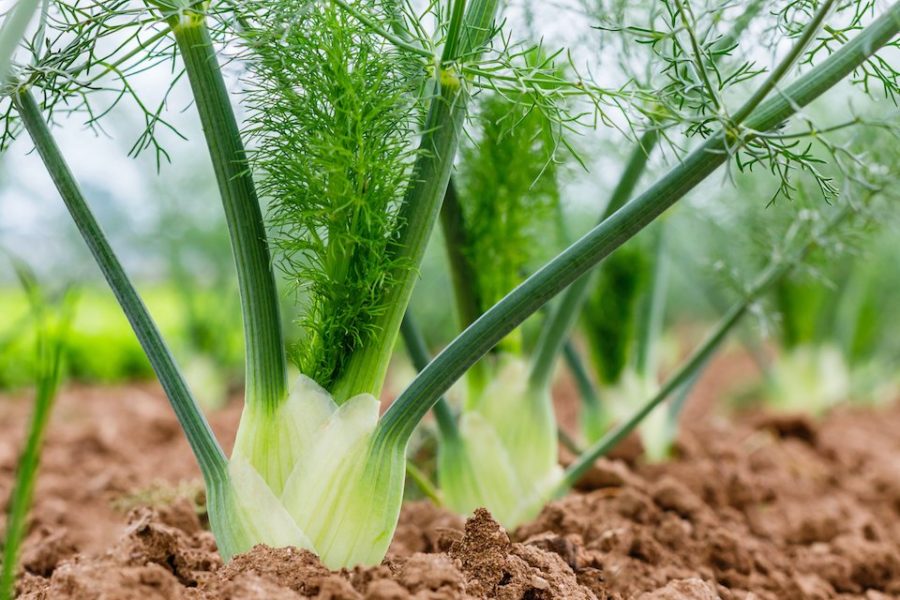This herb is a staple in Sardinia, where people live to be over 100 years-old and in good health
Written content from Emily Laurence

Your kitchen is full of cooking staples that, besides making food taste delicious, are actually scientifically linked to longevity. Olive oil, turmeric, and garlic are a few longevity superstars health experts rave about on a regular basis. But there’s another one that’s a little more unexpected: fennel.
Dan Buettner, a longevity expert has seen first-hand how fennel (a flowering plant in the carrot family that has a mild licorice flavor) is used on a regular basis in Sardinia, Italy, a Blue Zone region where people regularly live to be over 100 in good health. “Fennel grows wild in Sardinia, so it’s abundant and cheap there,” Buettner says. “It’s used in Sardinian cooking in soups, stews, and salads,” he says.
Lucina Corhiolu, RD, an Italian registered dietitian who lives in Sardinia, echoes Buettner in saying that fennel is widely used in this longevity hot spot. “Fennel is an ingredient in many dishes from our region, using both the fresh leaves and seeds,” she says. “The fresh, chopped leaves are added at the end of the preparation of soups, like vegetable minestrone, or with legumes. It’s also an important ingredient for a winter soup called favata, made with broad beans, cabbage, and pork. We also use them to season meats, in sweets, in the preparation of olives in brine, to flavor brandy or to be used as a digestive liquor, or simply to sip as an herbal tea.” That’s a lot of uses!
Buettner emphasizes that incorporating fennel into your meals is only one small part of a longevity-supporting diet. In his new book, The Blue Zones Challenge, Buettner explains that in Sardinia, whole grains, legumes, meat, fish, poultry, olive oil, and a wide range of other herbs are all part of how they eat as well. Buettner says it’s important to think about your eating habits as a whole as well as longevity-supporting habits outside of food, including movement and mindset. But it’s a small step that is backed by science. Curious as to how? Keep reading to learn more about fennel benefits.
5 fennel benefits that make it a longevity supporting all-star
1. Fennel is high in antioxidants
Both Buettner and Corhiolu are quick to point out that fennel is high in antioxidants, which are linked to supporting both brain and heart health. “The fennel seeds in particular are an especially good source of flavonoids, a type of antioxidant,” Corhiolu. This is worth calling out because flavonoids are linked to helping to lower and prevent chronic inflammation.
2. Fennel is good for the gut
There are a couple reasons why fennel is good for digestive health. Corhiolu says that one reason is that it has fiber, key for keeping the digestive tract running smoothly. Fennel is also known to soothe the stomach. For this reason, sipping fennel tea has long been an Ayurvedic remedy for bloating and gas. Consider it your all-natural replacement for Tums. “It absorbs stomach gas and eliminates it,” Corhiolu explains.
3. It’s good for the lungs
If you’re coming down with a cold, sipping on fennel tea can help. A scientific article published in the journal BioMed Research International states that fennel stimulates the contraction of the smooth muscles of the trachea, which helps clear out mucus and harmful bacteria.
4. Fennel helps lower blood pressure
The same scientific article says that fennel has been linked to lowering blood pressure, directly benefiting cardiovascular health. This is likely because of those powerful antioxidants!
5. Consuming fennel could support your memory
In animal studies, consuming fennel extract has been linked to improving spatial learning and memory. More research needs to be done to see if this also occurs in humans, but if so, it makes fennel a major brain-supporting herb. Read more from WellandGood





